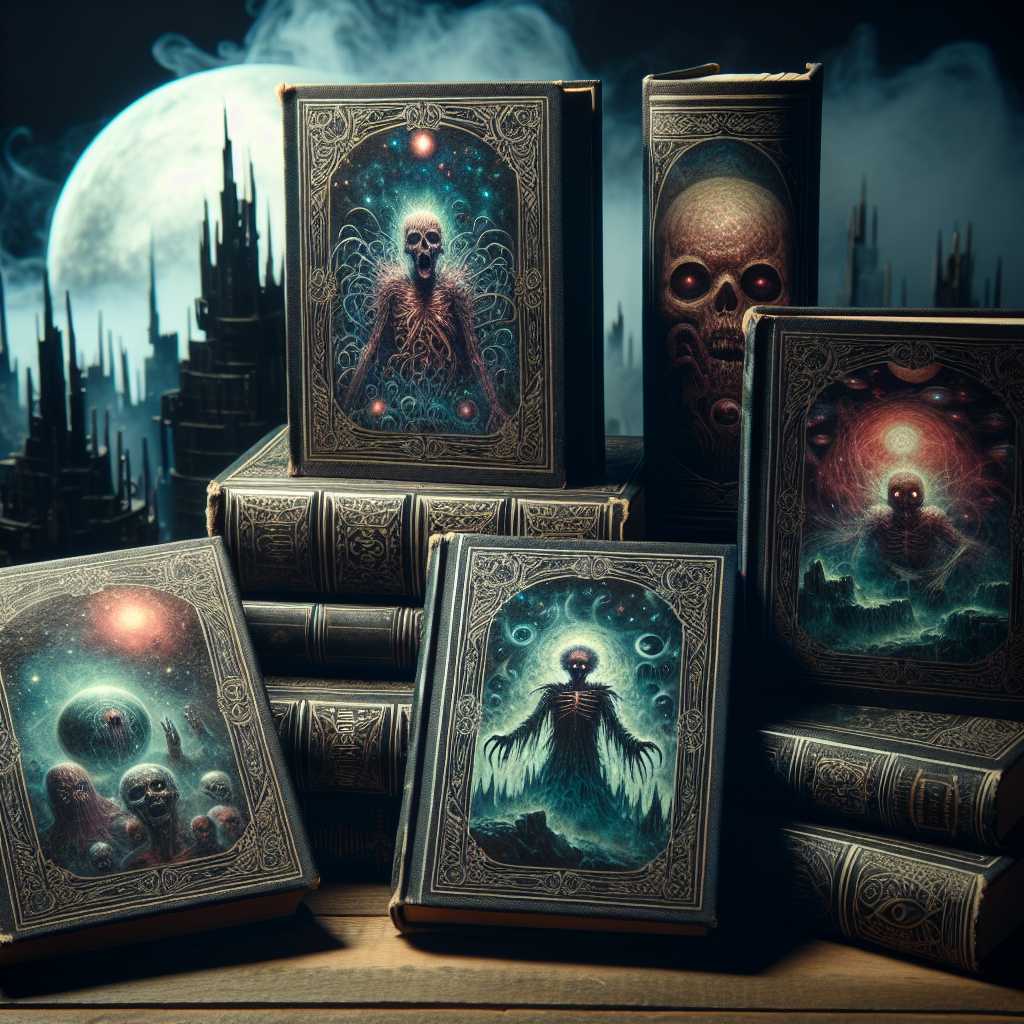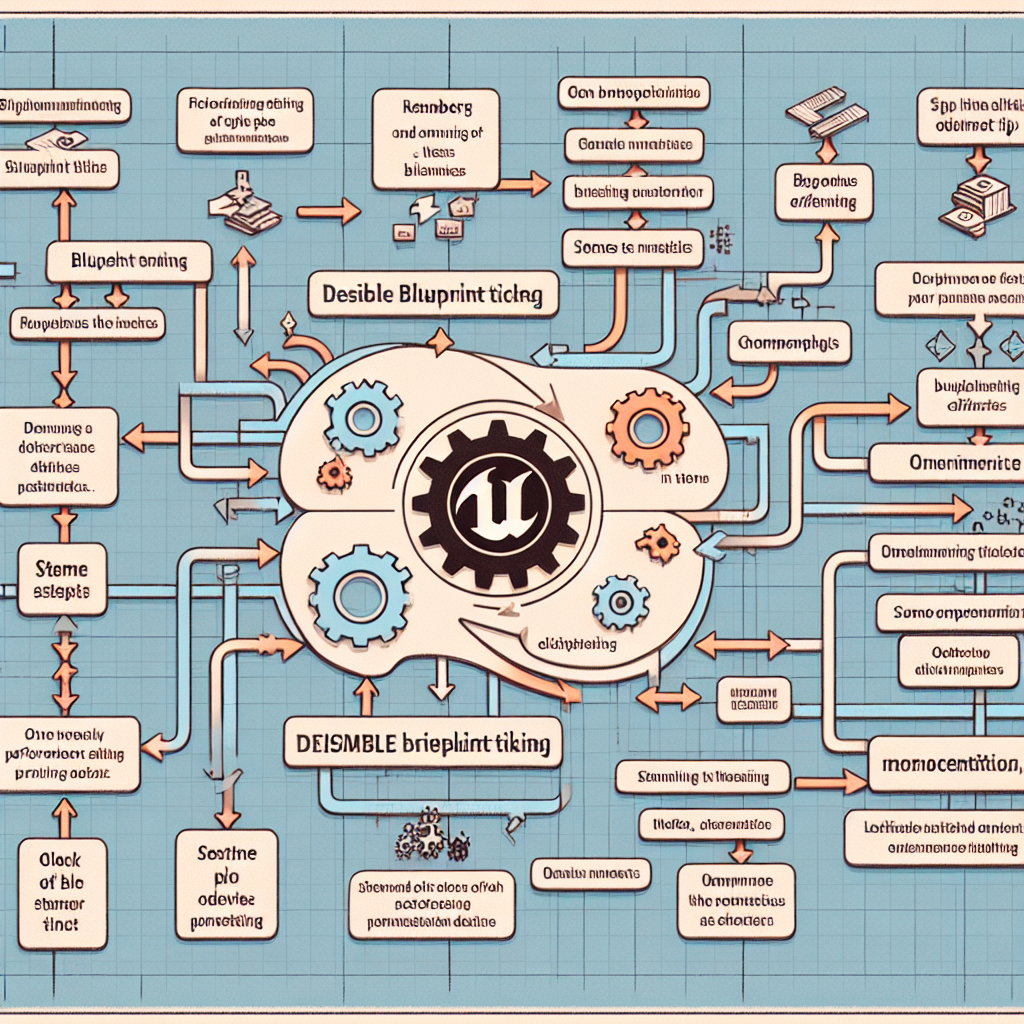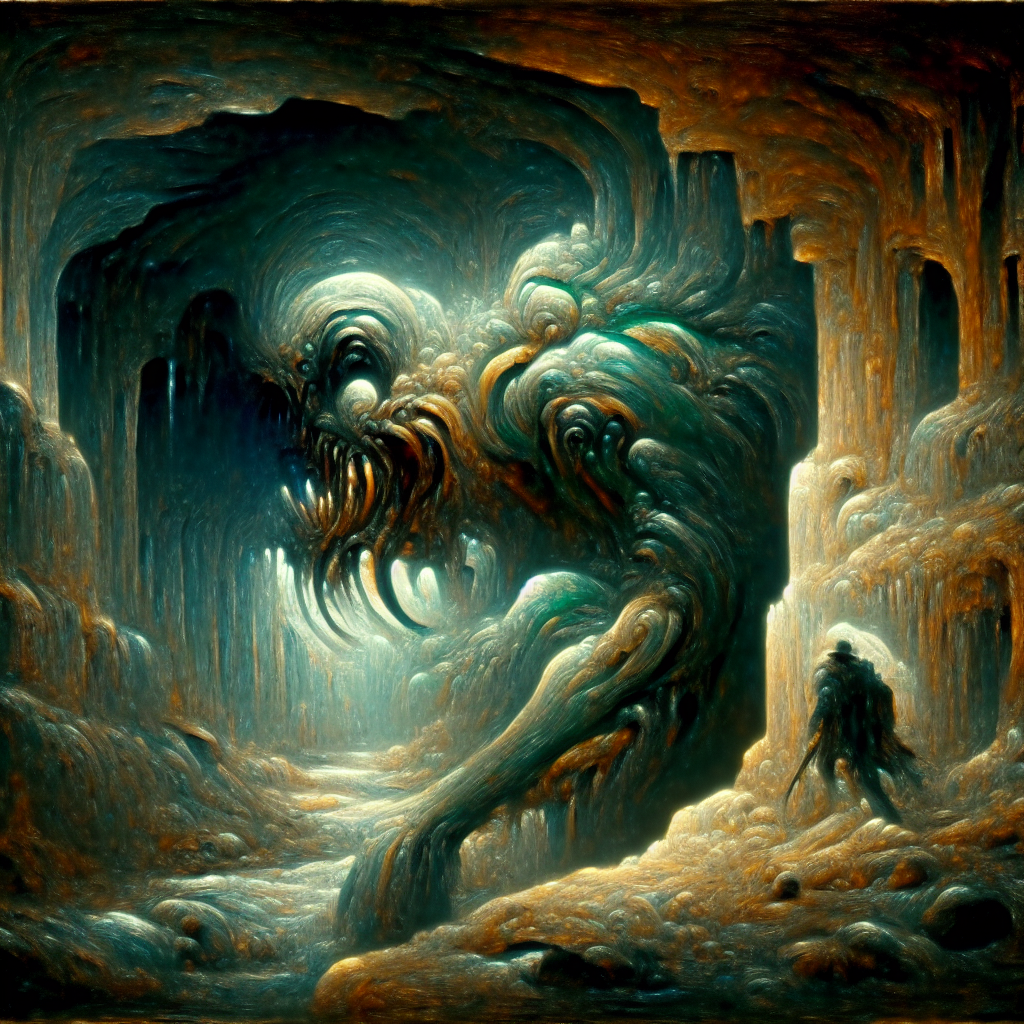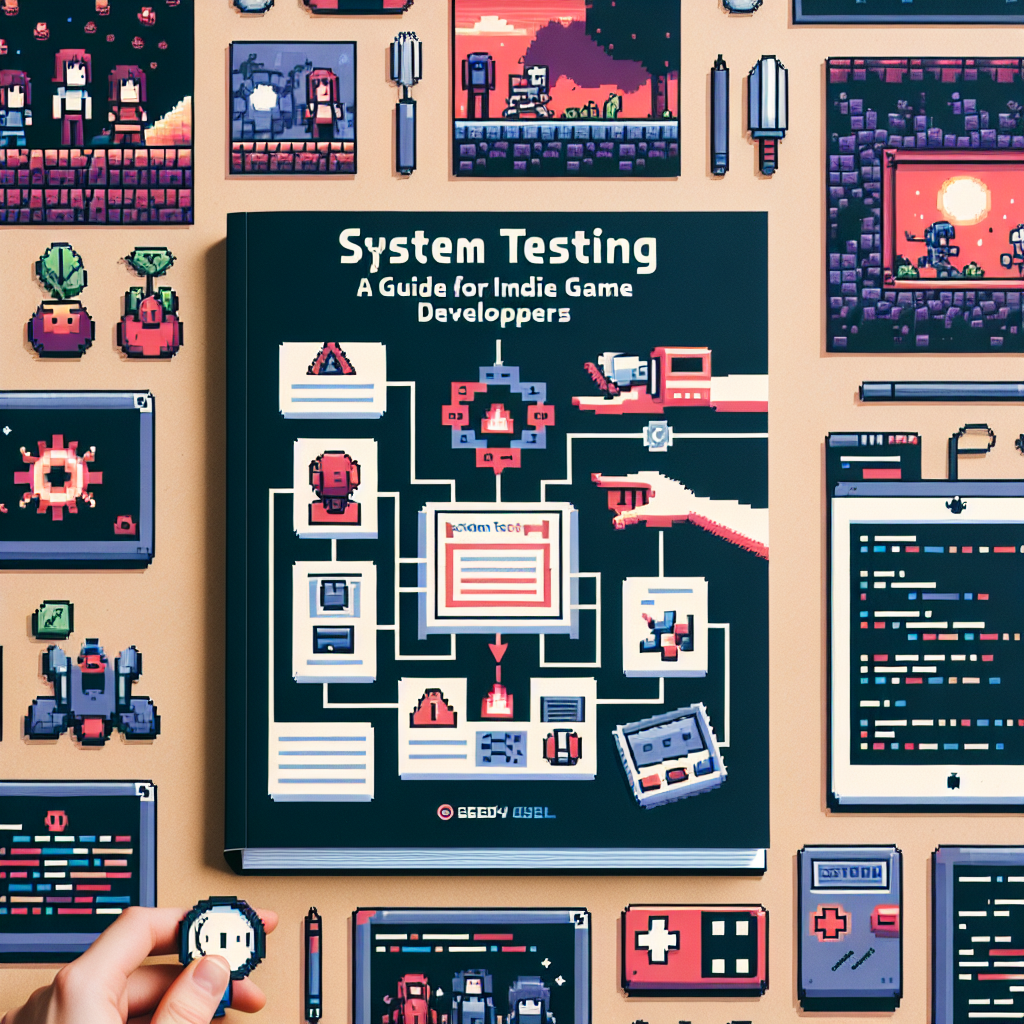-
Table of Contents
“Venture into the Abyss: Unravel the Unfathomable in Cosmic Horror Tales.”
Introduction
Cosmic horror, a subgenre of horror fiction, delves into the insignificance of humanity in the vast, indifferent universe. It often features ancient, incomprehensible entities and the fragility of sanity when confronted with the unknown. For those intrigued by the unsettling blend of existential dread and the supernatural, here are some essential cosmic horror stories that explore these themes. From H.P. Lovecraft’s foundational works to contemporary interpretations, these tales will immerse you in a world where the cosmos looms large, and the true terror lies in the realization of our own vulnerability.
The Influence of H.P. Lovecraft on Modern Cosmic Horror
H.P. Lovecraft, an American writer active in the early 20th century, has had an indelible impact on the genre of cosmic horror, shaping its themes, motifs, and narrative structures in ways that continue to resonate with contemporary authors. His unique blend of horror and science fiction introduced readers to a universe that is not only vast but also indifferent to human existence. This perspective fundamentally altered the landscape of horror literature, moving away from traditional ghost stories and psychological thrillers to a more existential form of dread that emphasizes humanity’s insignificance in the grand scheme of the cosmos.
Lovecraft’s most notable contribution to cosmic horror is the concept of the “Great Old Ones,” ancient, god-like entities that exist beyond the comprehension of human beings. These beings, such as Cthulhu and Nyarlathotep, embody the idea that there are forces in the universe that are not only beyond human understanding but also indifferent to human life. This theme of existential dread is a cornerstone of Lovecraft’s work and has influenced countless writers who seek to explore similar ideas. For instance, modern authors like Caitlín R. Kiernan and Laird Barron have drawn upon Lovecraftian motifs, crafting narratives that evoke a sense of cosmic insignificance and the fragility of sanity when confronted with the unknown.
Moreover, Lovecraft’s use of atmosphere and setting plays a crucial role in establishing the tone of his stories. His descriptions of desolate landscapes, ancient ruins, and the eerie silence of the cosmos create a palpable sense of unease. This atmospheric quality has been emulated by contemporary writers who recognize that the environment can serve as a character in its own right, enhancing the overall sense of dread. For example, in Jeff VanderMeer’s “Annihilation,” the mysterious Area X serves as a haunting backdrop that reflects the characters’ internal struggles and amplifies the story’s themes of transformation and the unknown.
In addition to thematic and atmospheric influences, Lovecraft’s narrative style has also left a lasting mark on the genre. His use of unreliable narrators and fragmented storytelling creates a sense of disorientation that mirrors the characters’ encounters with the incomprehensible. This technique has been adopted by modern authors who seek to evoke a similar sense of confusion and fear. Works such as “The Fisherman” by John Langan and “The Ballad of Black Tom” by Victor LaValle demonstrate how contemporary writers can reinterpret Lovecraftian elements while addressing issues of race, identity, and societal fears, thereby expanding the scope of cosmic horror.
Furthermore, Lovecraft’s legacy is evident in the proliferation of media inspired by his work, including films, video games, and tabletop role-playing games. These adaptations have introduced cosmic horror to new audiences, allowing for a broader exploration of its themes. The success of projects like “The Call of Cthulhu” tabletop game and films such as “The Color Out of Space” exemplify how Lovecraft’s ideas continue to inspire creativity across various platforms, ensuring that the essence of cosmic horror remains relevant in contemporary culture.
In conclusion, H.P. Lovecraft’s influence on modern cosmic horror is profound and multifaceted. His exploration of existential dread, atmospheric settings, narrative techniques, and the creation of a mythos that transcends human understanding have paved the way for a new generation of writers. As contemporary authors continue to grapple with the themes Lovecraft introduced, they not only pay homage to his legacy but also expand the boundaries of cosmic horror, ensuring its evolution in the literary landscape.
Exploring the Themes of Existential Dread in Cosmic Horror Literature
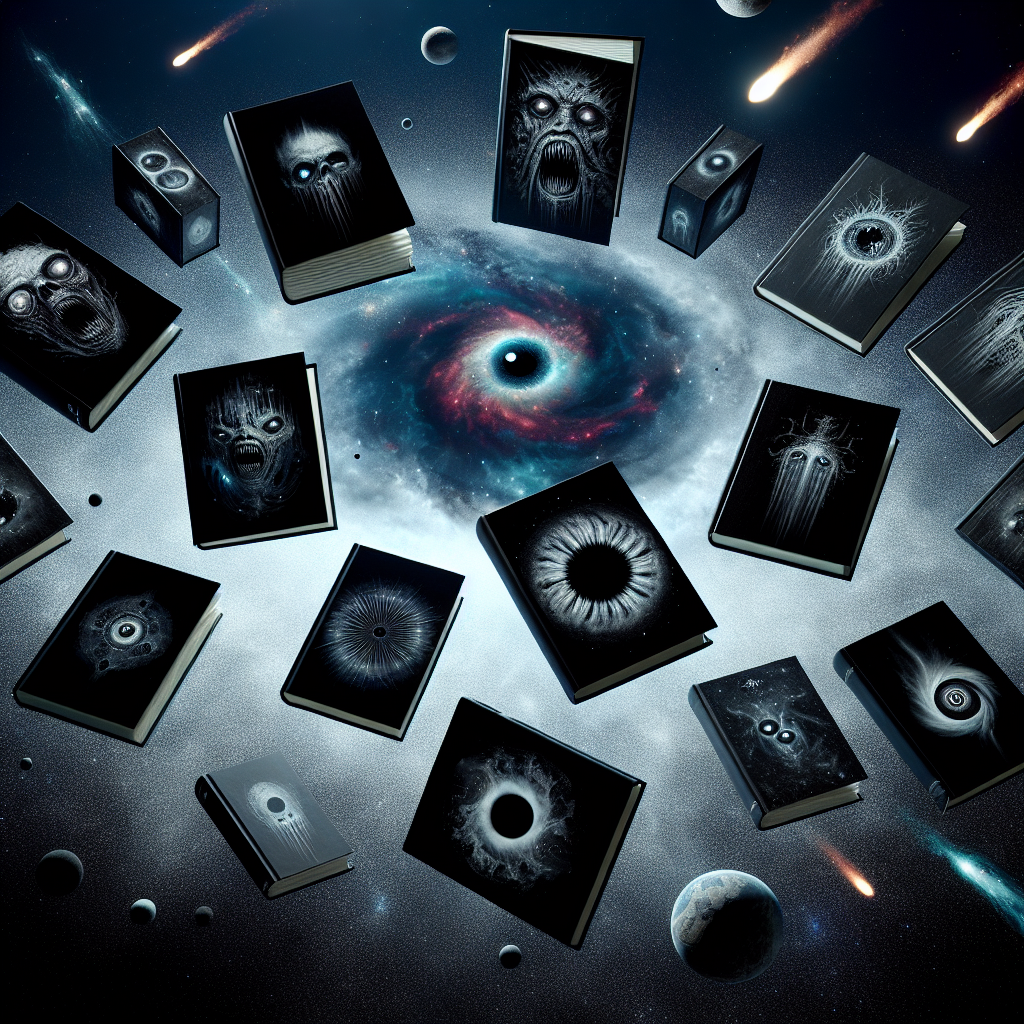
Cosmic horror literature delves into the profound themes of existential dread, exploring the insignificance of humanity in the vast, indifferent universe. This genre, often associated with authors like H.P. Lovecraft, presents a chilling perspective on existence, where the universe is not only vast but also populated by incomprehensible entities that challenge the very fabric of reality. As readers engage with these narratives, they are confronted with the unsettling notion that human life is but a fleeting moment in the grand scheme of cosmic indifference.
One of the most compelling aspects of cosmic horror is its ability to evoke a sense of helplessness. Characters often find themselves grappling with the realization that their understanding of the world is limited and that there are forces at play far beyond their comprehension. This theme is poignantly illustrated in Lovecraft’s works, where protagonists frequently encounter ancient beings or artifacts that reveal the fragility of human knowledge. The gradual unraveling of sanity in the face of such revelations serves to heighten the existential dread that permeates the genre. As readers accompany these characters on their harrowing journeys, they too are invited to reflect on their own place in the universe, fostering a sense of shared vulnerability.
Moreover, cosmic horror often emphasizes the futility of human endeavors. In many stories, characters strive to uncover truths or seek to confront the unknown, only to be met with despair and futility. This theme resonates deeply with the philosophical underpinnings of existentialism, where the search for meaning in an indifferent universe can lead to disillusionment. For instance, in works like “The Call of Cthulhu,” the pursuit of knowledge becomes a double-edged sword, revealing not only the mysteries of the cosmos but also the terrifying realization that some truths are better left undiscovered. This interplay between knowledge and ignorance underscores the inherent tension within cosmic horror, as characters grapple with the consequences of their curiosity.
In addition to the exploration of knowledge and ignorance, cosmic horror literature often reflects on the limitations of human perception. The genre posits that reality is far more complex than what can be perceived through the human senses. This notion is exemplified in stories where characters encounter beings or phenomena that defy logical explanation, leading to a breakdown of their understanding of reality. Such encounters serve to illustrate the fragility of human perception and the potential for madness that lies in the confrontation with the unknown. As readers navigate these narratives, they are compelled to question the reliability of their own perceptions, fostering a sense of unease that lingers long after the story concludes.
Furthermore, the theme of isolation is prevalent in cosmic horror, as characters often find themselves alienated from society and even from their own sense of self. This isolation can be both physical and psychological, as individuals confront the vastness of the cosmos and their own insignificance within it. The resulting alienation amplifies the existential dread, as characters grapple with the realization that they are alone in a universe that is indifferent to their existence. This sense of isolation resonates with readers, prompting them to reflect on their own experiences of loneliness and the search for connection in a seemingly uncaring world.
In conclusion, cosmic horror literature serves as a profound exploration of existential dread, inviting readers to confront the unsettling truths about their place in the universe. Through themes of helplessness, futility, perception, and isolation, these narratives challenge our understanding of reality and provoke deep philosophical inquiries. As readers engage with the chilling tales of cosmic horror, they are not merely entertained; they are compelled to reflect on the nature of existence itself, grappling with the profound questions that lie at the heart of the human experience.
The Role of the Unknown: Key Elements in Cosmic Horror Narratives
Cosmic horror, a subgenre of horror fiction, delves into the profound and often unsettling themes of the unknown and the incomprehensible. At the heart of these narratives lies the concept of the unknown, which serves as a pivotal element that shapes the reader’s experience and understanding of the story. This genre, popularized by authors such as H.P. Lovecraft, emphasizes the insignificance of humanity in the vastness of the universe, creating a sense of dread that is both existential and deeply psychological. The role of the unknown in cosmic horror narratives is multifaceted, influencing character development, plot progression, and thematic depth.
One of the most striking aspects of cosmic horror is its ability to evoke fear through the suggestion of what lies beyond human comprehension. Unlike traditional horror, which often relies on tangible threats or monsters, cosmic horror thrives on the ambiguity of its antagonists. These entities, often described as ancient and unfathomable, exist outside the realm of human understanding. This lack of clarity not only heightens the tension but also invites readers to confront their own fears of the unknown. As characters grapple with their encounters with these cosmic beings, they often experience a profound sense of helplessness, reinforcing the theme that humanity is but a fleeting presence in an indifferent universe.
Moreover, the unknown in cosmic horror narratives often manifests through the exploration of forbidden knowledge. Characters frequently stumble upon ancient texts or artifacts that reveal truths about the universe that are better left undiscovered. This pursuit of knowledge, while a fundamental aspect of human nature, becomes a double-edged sword. As characters delve deeper into the mysteries of existence, they often find themselves confronted with revelations that shatter their understanding of reality. This theme underscores the idea that some knowledge is perilous, suggesting that ignorance may be a form of protection against the overwhelming vastness of the cosmos.
In addition to the thematic implications of the unknown, cosmic horror narratives often employ a distinctive atmosphere that enhances the reader’s sense of unease. The settings in these stories are typically characterized by desolation and isolation, further emphasizing the insignificance of humanity. Whether it is a remote coastal town, an abandoned space station, or an ancient ruin, these locations serve as a backdrop for the exploration of existential dread. The environment itself becomes a character, reflecting the themes of isolation and the unknown. As characters navigate these eerie landscapes, the reader is drawn into a world where the familiar becomes alien, heightening the overall sense of disquiet.
Furthermore, the psychological impact of the unknown is a crucial element in cosmic horror. Characters often experience a gradual descent into madness as they confront the incomprehensible. This psychological unraveling not only serves to illustrate the fragility of the human mind but also invites readers to reflect on their own perceptions of reality. The tension between sanity and insanity becomes a central theme, as characters struggle to maintain their grip on reality in the face of overwhelming cosmic truths. This exploration of the psyche adds a layer of complexity to the narrative, making the horror not just external but also deeply internal.
In conclusion, the role of the unknown in cosmic horror narratives is integral to the genre’s ability to evoke fear and provoke thought. By emphasizing the insignificance of humanity, the dangers of forbidden knowledge, and the psychological ramifications of confronting the incomprehensible, cosmic horror invites readers to explore the depths of their own fears. As such, these stories serve as a powerful reminder of the mysteries that lie beyond our understanding, leaving an indelible mark on the landscape of horror literature.
Conclusion
Cosmic horror stories delve into the insignificance of humanity in the vast, uncaring universe, often exploring themes of existential dread and the unknown. Notable works include H.P. Lovecraft’s “The Call of Cthulhu,” which introduces the concept of ancient, powerful beings beyond human comprehension, and Thomas Ligotti’s “The Conspiracy Against the Human Race,” which presents a nihilistic view of existence. Other recommended reads are Caitlín R. Kiernan’s “The Drowning Girl,” which blends psychological horror with cosmic elements, and Laird Barron’s “The Imago Sequence,” showcasing the intersection of the mundane and the cosmic. These stories challenge readers to confront their fears of the unknown and the fragility of human existence, making them essential for fans of the genre.
